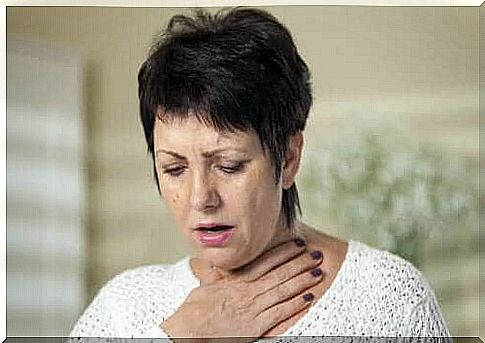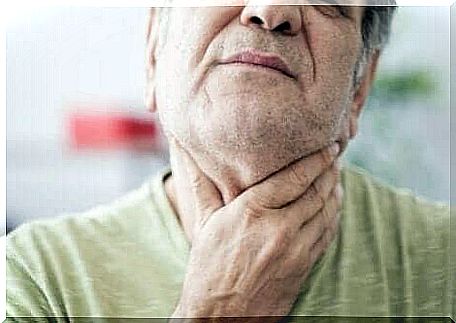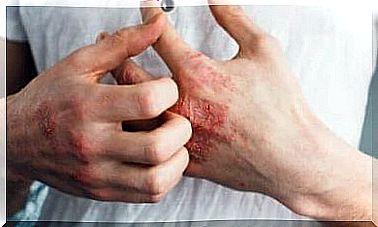What Are The Causes Of Dysphagia?
Dysphagia is characterized by discomfort or difficulty swallowing and can occur for a variety of reasons. Today we report on the causes of dysphagia.

When we speak of dysphagia, we are referring to a disorder that makes it difficult to consume food and fluids. The feeling of a completely stiff throat arises. This can lead to nausea when people try to force themselves to swallow.
This problem, which some people experience, has a number of causes and various consequences that are important to be aware of. Below we will tell you what causes dysphagia and what you can do to reduce its effects.
The causes of dysphagia
Dysphagia is one of the geriatric clinical pictures, as it mainly occurs in older people. Here are some of the possible causes of dysphagia:
- Neurological Disorders: Some diseases such as multiple sclerosis, muscular dystrophy, Parkinson’s disease, and others can cause dysphagia. This is because the muscles that are needed to swallow are not working properly.
- Cancer: Difficulty swallowing can be a sign of throat cancer. But treatments such as radiation and chemotherapy can also lead to such complaints.
- Gastroesophageal reflux: Frequent reflux can injure the esophagus, causing scarring and narrowing.
- Foreign bodies: Sometimes dysphagia can result from foreign bodies lodged in the throat. Unchewed meat or missing teeth are common causes of dysphagia.

These are just a few of the possible causes of dysphagia, but there are others that can cause such symptoms. For example, achalasia, in which the muscles of the esophagus do not relax properly, can also lead to dysphagia.
So now that you know the possible causes of dysphagia, let’s take a look at the possible consequences.
The consequences of dysphagia
As we have already mentioned, dysphagia mostly affects an age group that is already at great risk. Therefore, it is important to pay attention and see a doctor if you have difficulty swallowing. Otherwise, the condition could lead to serious complications.
Malnutrition as a result of dysphagia
If an elderly person has dysphagia and cannot ingest food or fluids, severe malnutrition can result. The problem can even go so far that the person is unable to even swallow their own saliva.
In these cases, it is important to adjust the person’s diet and use nutritional supplements. One way to prevent malnutrition is to use a tube through which the required nutrients are supplied to the patient.
Breathing problems
This second complication occurs when a patient involuntarily inhales a piece of food and it gets directly into their airways. This can lead to the person being unable to breathe and causing breathing to stop.

Dysphagia can also lead to pneumonitis or pneumonia due to aspiration. Such situations are very serious and require urgent treatment given the risk they pose to the lives of elderly patients.
To treat respiratory problems, prevention is the best medicine. Therefore, it is important to take compensatory measures to reduce aspiration and the risk of airway obstruction from food.
Aspects to consider
In addition to all of the above, there are a few things to consider when a person has dysphagia. Most importantly, keeping the person in a quiet environment and avoiding distractions that can lead to aspiration. Above all, however, the specific instructions of the attending physician should be followed.
If you have any of the symptoms that characterize dysphagia, it is important to speak to your doctor. This is especially important if you belong to a risk group. Your doctor will do the necessary tests to make the correct diagnosis. In addition, he will give you a number of recommendations that you should put into action.
Remember that prevention is paramount in these cases and that certain exercises can improve the ability to swallow food and fluids.









